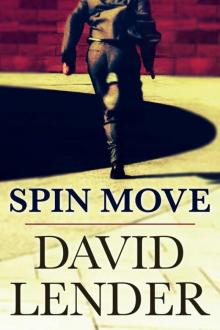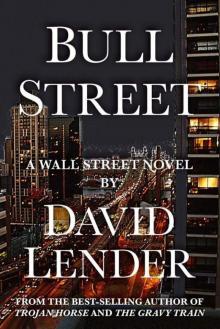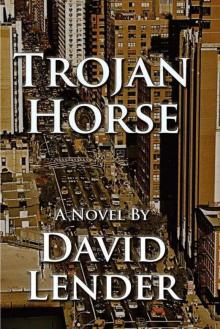- Home
- David Lender
Arab Summer Page 13
Arab Summer Read online
Page 13
He was past both SUVs now. No sound, no movement. It had to be the Secret Police. Send it, he told himself, still with his hand on the cell phone button. He heard the sound of an engine revving, turned back to see the first, then the second SUV moving away from him toward Saif’s house. He hit SEND, saw the SUVs picking up speed. He turned back and forced himself to continue walking at the same pace.
His virgins would wait for another day.
Saif stood in his backyard, admiring the stars, breathing the cool air of the Saudi evening. But for the breeze a perfect evening. He heard the ping of a text message, pulled out his cell phone, saw nothing. He felt rising alarm, then pulled out the disposable cell phone from his other pocket. SP, 100 METERS, MOVING TO YOU. Now a burst of adrenaline. He darted behind his house, thinking of Noor and Indira, then his brother, Farid, and his family inside the house. No time. Had they come simply to toss the place or was it a death squad? He felt a spasm in his chest, then leaped the fence into the neighbor’s yard, running parallel to the street. He kept moving, leaping fences. From three houses down the street he heard vehicles, saw the headlight beams, the sound of tires skidding to a stop in the dirt of the street. Saif turned ninety degrees and headed toward the street when he saw the headlights from two more SUVs approaching from the other direction. He turned around, jumped the fence and headed toward the street behind his, hoping they hadn’t the foresight to cover the rear.
Five minutes later Saif started the Land Rover hidden four blocks away and turned it toward the center of Buraida, driving as fast as he dared without attracting attention. Then the thought of Qahtani being targeted at the same time caused him to clench his stomach muscles and press down on the accelerator. Would they go to the mosque or his house? Both, you fool, he told himself. He slowed for a moment, then reached under the seat for the AK-47 stashed there. He got to the intersection 200 meters from the mosque and saw four vehicles parked in front, headlights trained on the door. Too late. Or had his spotters gotten word to Kassem and Tewfiq, Qahtani’s bodyguards?
He turned right and gunned the engine toward Qahtani’s house. Ridiculous, he decided. He took a left and headed for the safe house in the northeast quadrant of Buraida.
They’d planned for this, but were never sure when to expect it. It was bound to happen now that they had broadened the discussions with the other Islamic dissident groups, the Ikwan, the Islamic Revolutionary Party, and the Muslim Brotherhood. And with their meetings with the clerics and Koranic scholars to convince them Qahtani was the Mahdi, sooner or later there would be a leak, and obviously it had happened. He felt a bolt of alarm as he saw a flash in the rearview mirror. Headlights behind him. Was it a tail or just another car?
He was now a quarter kilometer away from the safe house. He turned off the street, headed north up an alley and pressed the accelerator to the floor, checking the rearview mirror. Nothing. He kept going straight, then saw headlights behind him turn down the alley, and then another set. He pulled up behind the safe house. Fool. He’d led them right to it. He leaped out of the Land Rover carrying the AK-47 and the sack of grenades from under the seat. He pounded on the back door. Someone flung it open and he ran inside, smelling the oil from weapons. He saw Qahtani, ten other men. They would have to be enough. He waved three men to the front, two of them scared boys whose names he forgot and the other Rashid. Rashid was a steady hand who could calm the boys. The rest of the men he waved toward him. He found Kassem and Tewfiq.
“Stay with the Mahdi,” he ordered them.
He turned back to the door, stood inside until he heard the SUVs almost upon them. He waited, feeling his nerves dancing with anticipation. Or fear?
This is it.
He ran out into the alley, holding aloft the AK-47 in one hand, the bag of grenades in the other. He passed through the headlights and crouched behind the Land Rover. He waited for the other six men to pull up behind him, then leaned over the hood and opened fire into the windshield of the first SUV. The Secret Police had angled their SUVs sideways as a firing screen. He saw the far side doors open and then the flashes of return fire. The windshield of the Land Rover shattered and glass flew everywhere. The Land Rover shook from the bullets slamming into it. Saif pulled the pins on two grenades and lobbed one at each SUV, then retrieved his AK-47 and kept firing. The return fire stopped for a moment after the grenades exploded, then resumed, the noise now muffled in Saif’s ears from the blast of the grenades. A man next to him was slapped backward like a doll, his head exploding. Saif felt moisture on his face and wiped it away. He smelled gasoline and then the Land Rover’s gas tank exploded, the concussion knocking him over backward. He felt for the AK-47, righted himself and started firing blindly through the flames.
There was less return fire now. Only two starbursts of flame from the rear SUV. He threw two more grenades over the top of the SUV. He waited for the first to explode, then yelled, “Now!” and ran toward the SUV. From the corner of his eye he saw four of his men follow him. He prayed to Allah the clip on the AK-47 would hold out. After the second grenade exploded he rounded the rear SUV and saw four men down, three in a pile. Saif walked up to them, his AK-47 trained. He kicked the men. No movement. He turned to his men behind him and waved the all clear.
He looked at the SUV, riddled with bullets, the windows blown out and the tires on this side both flat. “See if it starts,” he called out to Omar, one of his men, pointing to the other SUV. Omar climbed into it, then out, shaking his head. Saif heard a sound behind him, spun and saw a man pulling to his knees from underneath two others piled on top of him. He heard the click of the man’s assault rifle, then two more in quick succession. Empty clip, praise be to Allah. Saif lunged toward the man and smashed him in the head with his rifle butt. The man collapsed to the ground, unconscious.
“One’s alive,” Saif called out. “Bring him. Hurry!” He ran back to the side of the safe house and shot the lock off the wooden doors next to it. He opened them and ran to the Land Rover parked behind them.
“Bring the Mahdi.” Saif climbed into the Land Rover and started it. Kassem and Tewfiq brought Qahtani with them into the backseat. Two men dived in the rear with the prisoner, another in the passenger seat, and Saif drove off. The others would have to disperse, fend for themselves.
As he speeded through Buraida he thought, Now it’s on. The time for talk and preparations was over.
The next morning, Tom was working on his laptop in the conference room when Ryan walked in, looking grave. Tom leaned back from his computer when he saw Ryan’s face. “What’s wrong?”
“You aren’t going to like this.” Ryan sat down across the table from Tom. “I just got word from the field that last night the Secret Police hit Saif’s house, Qahtani’s house and the mosque Qahtani operates from. They didn’t get either of them, but a team of two Secret Police cruisers, eight men, followed an SUV into an alley and got into a firefight before backup could arrive. Seven men killed, one either escaped or was taken prisoner. Three other unidentified bodies were at the scene, as well as the SUV they must have been following. Everyone else escaped. We haven’t been able to get a hold of Rashid yet, but we think it was Saif and his men who attacked the Secret Police.”
Tom’s legs felt heavy. He wondered again, as he had after hearing yesterday about the fatwa addressing dissidents, if somehow Yassar was involved in this. Whatever brought it about, Ryan was right. It wasn’t good news. This would drive Saif deep underground, make it much more difficult to locate him. It also might be a catalyst for the launch of an uprising. On the other hand, seven Secret Police dead would make Saif a wanted man, probably Qahtani, too.
“I’m calling Yassar,” Tom said.
“It would be better if we spoke in person,” Yassar said when Tom phoned him at his office in the Royal Palace. “I will come to you.”
“Fine. I’m at the American Embassy.” Tom hung up, seething. He detected from Yassar’s voice that he knew more about the Secret Police’s attempted raid
s than he’d admitted. In Yassar’s position he would have to know; he may have even ordered them. It made sense. It was too much of a coincidence right after Tom got Yassar up to speed on the seriousness of what Saif and Qahtani were up to. But why didn’t he tell me? They could have worked together, coordinated it.
Calm down, he told himself, realizing he was clutching the edge of the conference table. He had some explaining to do himself, too. He hadn’t exactly been forthright with Yassar, hadn’t let him know he was in Saudi Arabia yet, and had brought Sasha with him. He also owed Yassar an answer to the proposal he made in the Caymans. That was too important to screw up, so Tom couldn’t show his anger over Yassar going around him and driving Saif deeper underground. He stood up, started pacing, then sat back down, realizing that would only get him more worked up. He realized he’d have to suck it in, smile, maybe even kiss Yassar’s ass when he got there, despite the fact that the previous night’s events had messed up Tom’s operation. He frowned. Not things he was good at. There’s a reason you work for the CIA instead of the State Department.
A half hour later, an embassy aide walked Yassar into the conference room. Yassar was dressed in his Saudi robe and headdress, his face expressionless. All business. They shook hands and Yassar sat down. The aide closed the door on the way out.
“I was unaware you were on Saudi soil,” Yassar said in a monotone, drumming his fingers on the table.
“I was gonna let you know in a day or so. We arrived yesterday morning and we’re just getting organized.”
“Where is Sasha?”
“Downstairs training.”
Yassar didn’t respond.
Tom said, “I gather she hasn’t called you. Sorry, I know you’re—”
“That is a matter between Sasha and me. Please do not intrude.”
Tom leaned back in his chair and put his hands up as if to apologize. He could understand how Yassar might be pissed at Sasha. He imagined that if he had a daughter, or someone he treated like one, and she hadn’t called in 18 months and then dropped in without saying anything, he’d be pissed, too. “I apologize,” Tom said. “Let’s talk about Saif. I heard from one of our men in the field about the fatwa that was recently issued about dissenters. Was that why the Secret Police raids were ordered last night?”
Yassar hesitated, then said, “The fatwa was limited in its authority, and doesn’t extend beyond arresting and holding those who are fomenting dissent. It is an effort to slow things down, reduce tensions while our other efforts to mollify our citizens have time to take effect. We have put steps in place to provide additional financial support for the Saudi people under the assumption we will strike an agreement such as the one you and I discussed in the Cayman Islands, either with the United States or another sponsor.”
“Since you raised it, I’m authorized to tell you that we’ll accept your proposal. My director is working out the details.”
Yassar smiled. “I’m pleased,” he said, and then his smile disappeared. “In concept. Obviously I will wait to hear something more concrete within the time frame we discussed.”
Message received. “I understand. That’s our intention.” Tom wanted to move on, because he didn’t have more to offer on the subject. He figured he’d see how far he could push Yassar on Saif. “Getting back to Saif, I was told seven of your Secret Police were killed last night. I would imagine that makes Saif a wanted man and our job easier.”
“How so?”
“It sounds like our primary job now is just to locate him. Certainly the fact that he and his men murdered seven of your people would justify your disposing of him.”
Yassar raised his eyebrows.
“A cruise missile or smart bomb strike is all it would take. I know you have that technology. We sold it to you.”
“I thought I was just very clear. Our fatwa does not extend that far. It might be different if we had proof that Saif was responsible for the men’s deaths, but we do not. Our men radioed that they were following a car, with no knowledge of who was in it.”
“Yeah, but with a little embellishment, this should give you what you need.”
“It’s too public, and besides, we have our religious leaders to deal with. We take such things seriously.” Yassar shifted in his seat. “I have thought long and hard about your plan with Sasha. I see it as perhaps the only workable solution for the moment.”
“So then you could give us support for our operation?”
“The most I can offer is that I will look the other way, and do anything I can to throw our people off the track if they uncover your efforts and prepare to intervene.”
“And what about Sasha? You won’t try to stop her?”
Yassar averted his eyes. “The fact that I haven’t heard from her means she is not receptive to what she obviously knows will be my opinion on the subject. The woman has her own mind.”
Tom didn’t buy it. He thought Yassar would still try to talk her out of it. He had a bad feeling about it, even though he’d looked in Sasha’s eyes and seen her resolve.
In the rocky hills 20 miles northeast of Buraida, Saif pulled his kerchief tighter over his face against the windblown sand and dirt. He could taste it, feel the red earth’s gritty texture in his mouth. He watched his men struggle against the wind to set up the camouflage screen on poles above the tents of their camp. The camp was a half mile from the paved highway, and a few hundred yards from the dirt side road, down the slope and around the corner under a rocky promontory. Out of sight except from the air, and in another 30 minutes the 40 x 60 foot main tent, a half dozen smaller tents and their dozens of SUVs would be concealed from aircraft or satellite cameras by the camouflage screen as well.
He wanted to help them wrestle with the poles, ropes and spikes, but he decided that might undermine their perception of his command. There were times when he could make a statement by pitching in, but this wasn’t one of them. So he watched, occasionally leaning this way or that in sympathy as they tugged and struggled. His disposable cell phone rang.
“Yes?”
“We know where Fahd is.”
“Get him and bring him to me,” Saif said and hung up. He both dreaded and welcomed the news. Fahd was in his early 30s, the prime of life, with a wife and two children. An otherwise good man, a loyal follower, quiet and barely noticed, who had now distinguished himself as a coward, deserting his surveillance post outside Qahtani’s mosque at the time the Secret Police had arrived. He’d fled, apparently in panic, with no warning message, and failed to report with his weapon to the safe house. It was unforgivable, and Fahd must be used as an example, even though it pained Saif.
Fahd heard the afternoon call to prayers as he sat on a bench in the dark of the shed behind his brother’s house on the outskirts of southwestern Buraida. The heat inside the tiny space was almost unbearable, and yet he felt grateful for it, accepting it as appropriate as partial atonement for his failure. He had no prayer rug, so he knelt on the dirt floor, facing west toward Mecca, and began to pray. After he finished, Fahd felt his way to the bench again in the dim light coming through cracks between the boards of the shed. He sat, leaned forward and placed his head in his hands and wept. He wept with anguish over how his wife, Nilofar, and his children, Ahmed and Toomi, would receive the news, and with relief that he would be able to compensate for his failure without shaming his family. After a few minutes he stood and walked out the door of the shed, squinting against the sun. Then he opened his brother’s gate and entered the street. He began walking, knowing they would find him in time, hoping it wouldn’t take long. Against his will, his tears began to flow again.
There is no God but Allah, he prayed as he walked.
He heard a vehicle behind him. He turned to see a pickup truck drive up and stop a few feet from him. Two men—his friend, Rashid, behind the wheel, and another man he didn’t recognize—were in the cab. Rashid nodded to Fahd. The other man got out and stepped toward him. Something snapped inside Fahd. He felt a pull at hi
s heart and saw the image of the face of his son, Ahmed, then felt fire in his brain. He screamed, “No!” turned and ran. A few moments later the man tackled him. He screamed, “No, no, no!” and thrashed his legs, punched, flailed and scratched to break free and then Rashid was upon him too, stuffing a rag into his mouth, then swinging a board at him. He felt the thud of it hitting his head once, twice, then blackness.
Saif was just leaving the main tent when the pickup truck entered the camp and stopped in front of him. His pulse shot up when he saw Fahd slumped between Rashid and Hassan, his hands bound, mouth gagged and face and head bloodied. Rashid climbed out from behind the wheel, looked at Saif for a long moment, then walked to the other side of the cab and helped Hassan drag Fahd, sobbing, his feet dangling beneath him, toward the tent. Saif reentered the tent and pointed to one corner, where a rug was placed in front of a video camera.
Saif called out, “My brothers. You must all bear witness.” He set his jaw and puffed out his chest as he walked into the center of the throng of 150 men in the tent, glaring at anyone who would look him in the eye. He turned, parting the group, and walked to the corner where Rashid and Hassan now placed Fahd in a kneeling position on the rug in front of the video camera. They removed his gag and bindings. Rashid walked behind the camera and turned on floodlights. Saif nodded to Rashid and Rashid walked toward the rear of the tent.
Saif called out, “There is no God but Allah!” as he walked behind Fahd and faced the camera.
“La ilaha ilallah!” the men repeated.

 Arab Summer
Arab Summer Sasha Returns
Sasha Returns Spin Move
Spin Move Bull Street (A White Collar Crime Thriller)
Bull Street (A White Collar Crime Thriller) Vaccine Nation
Vaccine Nation Trojan Horse
Trojan Horse